In celebration of the company's centennial, staffers selected 100 titles that illustrate the breadth and depth of Simon & Schuster's publishing program, across genres, imprints, and borders. They include many literary classics; titles that were pioneering in their field and captured cultural moments, trends, and ideas; histories, memoirs, and biographies by and about key political, cultural, and historical figures; and more. Following are highlights from the Simon & Schuster 100.
The Simon & Schuster Mega Crossword Puzzle Book #1 was the first title published by the new Simon & Schuster company—under the Plaza Publishing Company imprint—as well as the first collection of crossword puzzles ever printed in book form. The Simon & Schuster Crossword Puzzle Book series continues to be one of the most popular crossword puzzles book series.
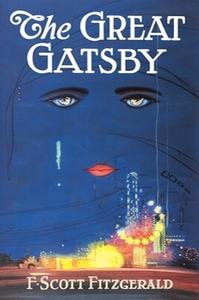 The Great Gatsby by F. Scott Fitzgerald, first published in 1925, is the quintessential novel of the Jazz Age and is a classic of American literature. Remarkably for a title that's a cultural touchstone, seven other titles were in the works before Fitzgerald landed on The Great Gatsby.
The Great Gatsby by F. Scott Fitzgerald, first published in 1925, is the quintessential novel of the Jazz Age and is a classic of American literature. Remarkably for a title that's a cultural touchstone, seven other titles were in the works before Fitzgerald landed on The Great Gatsby.
A Farewell to Arms by Ernest Hemingway. This book about love during wartime is the best American novel about World War I and one of Hemingway's finest.
The Good Earth by Pearl S. Buck, the first American woman to be awarded the Nobel Prize for literature. This masterpiece follows a humble farmer's journey in China in the 1920s, when the last emperor still ruled but vast political and social changes were beginning to engulf the country.
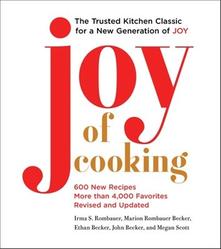 Joy of Cooking by Irma S. Rombauer, Marion Rombauer Becker, Ethan Becker, John Becker, and Megan Scott. First published by Irma S. Rombauer and revised and edited over the years by her daughter, grandson, great-grandson, and his wife, this is the cooking bible, which has always included classic and new recipes and emphasized what's promised in the title.
Joy of Cooking by Irma S. Rombauer, Marion Rombauer Becker, Ethan Becker, John Becker, and Megan Scott. First published by Irma S. Rombauer and revised and edited over the years by her daughter, grandson, great-grandson, and his wife, this is the cooking bible, which has always included classic and new recipes and emphasized what's promised in the title.
Gone with the Wind by Margaret Mitchell. Published in 1936 and winner of the Pulitzer Prize, this is a classic novel about the Civil War and Reconstruction that was made into an epic movie.
How to Win Friends and Influence People by Dale Carnegie. This is one of the best known and groundbreaking motivational self-help books that has aided many millions of people find success in their professional and personal lives.
The Yearling by Marjorie Kinnan Rawlings. A classic tale of a family leading a wild, hard, but satisfying life in primitive, rural Florida, an instant hit when it was published in 1938 and a Newbery Honor Book.
Eloise by Kay Thompson, illustrated by Hilary Knight, was the first of many delightful books about the little girl who lives in the Plaza Hotel in New York City.
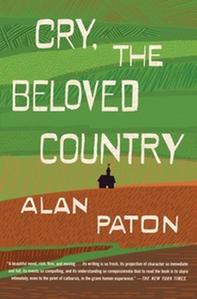 Cry, the Beloved Country by Alan Paton. The single most important work in South African literature, this 1948 title portrays the horror of white-ruled South Africa, telling the story of Zulu pastor Stephen Kumalo and his son, Absalom. An Oprah Book Club selection.
Cry, the Beloved Country by Alan Paton. The single most important work in South African literature, this 1948 title portrays the horror of white-ruled South Africa, telling the story of Zulu pastor Stephen Kumalo and his son, Absalom. An Oprah Book Club selection.
Fahrenheit 451 by Ray Bradbury. This 1953 book is the classic dystopian novel, about a world in which books are banned—and burned. Bradbury earned a Grammy nomination in the spoken word category for the 1976 audiobook, which he performed himself.
The Rise and Fall of the Third Reich: A History of Nazi Germany by William L. Shirer. Published in 1960, this National Book Award winner is the main general history of Nazi Germany and sold millions of copies in just the first year of publication.
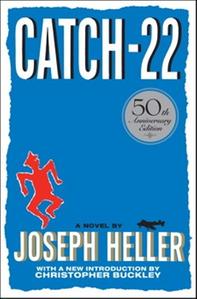 Catch-22 by Joseph Heller. Published in 1961, this hilarious anti-war novel, set during World War II, became such a classic that its title became a byword for the idiocy of modern bureaucracies and procedures. Heller originally was going to call it Catch-18.
Catch-22 by Joseph Heller. Published in 1961, this hilarious anti-war novel, set during World War II, became such a classic that its title became a byword for the idiocy of modern bureaucracies and procedures. Heller originally was going to call it Catch-18.
The Chosen by Chaim Potok. A classic coming-of-age story of two Jewish boys growing up in Brooklyn in the 1940s, this is a poignant novel about transformation and tradition, growing up, growing wiser, and finding yourself.
From the Mixed-Up Files of Mrs. Basil E. Frankweiler by E.L. Konigsburg. The Newbery Medal–winning classic about a girl and her brother who run away to live in the Metropolitan Museum of Art, where Claudia finds a way to go home that she never had imagined.
Sylvester and the Magic Pebble written and illustrated by William Steig. This 1970 Caldecott Medal winner is about the tender tale of donkey Sylvester, his magic pebble, and finding his true self after making a difficult wish.
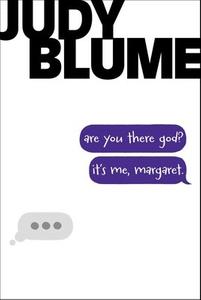 Are You There God? It's Me, Margaret. by Judy Blume. Margaret, the heroine of this instant YA classic, has a special relationship with God, talking about everything, sharing all her secrets. A frequently banned book, the banning started early and in a shocking way. When three copies of the book were donated to the grade school Judy Blume's children attended, the principal immediately removed them from the shelves, marking the author's first experience of having one of her books banned.
Are You There God? It's Me, Margaret. by Judy Blume. Margaret, the heroine of this instant YA classic, has a special relationship with God, talking about everything, sharing all her secrets. A frequently banned book, the banning started early and in a shocking way. When three copies of the book were donated to the grade school Judy Blume's children attended, the principal immediately removed them from the shelves, marking the author's first experience of having one of her books banned.
For colored girls who have considered suicide/When the rainbow is enuf by Ntozake Shange. This classic Obie Award–winning play reveals what it meant to be a woman of color in the 20th century.
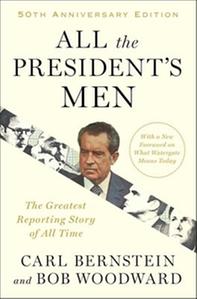 All the President's Men by Carl Bernstein and Bob Woodward was the definitive work on the fall of the Nixon Presidency, made into a brilliant movie. For the movie, Bernstein lent his wristwatch to the actor playing him, Dustin Hoffman.
All the President's Men by Carl Bernstein and Bob Woodward was the definitive work on the fall of the Nixon Presidency, made into a brilliant movie. For the movie, Bernstein lent his wristwatch to the actor playing him, Dustin Hoffman.
Where Are the Children? by Mary Higgins Clark is the 1975 suspense title that began Clark's long, successful career.
Strega Nona by Tomie dePaola, a children's classic and a Caldecott Honor Book. DePaola's editor encouraged him to write and illustrate his own take on a favorite childhood folktale, which for him was the porridge pot story. He thought children in the '70s wouldn't know what porridge was and used pasta instead.
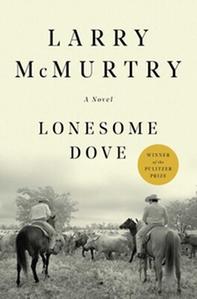 Lonesome Dove by Larry McMurtry won the Pulitzer Prize, was called "the Moby Dick of the American Plains" by legendary editor Michael Korda, and was made into a memorable TV series.
Lonesome Dove by Larry McMurtry won the Pulitzer Prize, was called "the Moby Dick of the American Plains" by legendary editor Michael Korda, and was made into a memorable TV series.
Schindler's List by Thomas Keneally was published as a "nonfiction novel" and made into the powerful movie by Steven Spielberg. In the U.K., it was initially titled Schindler's Ark.
Chicka Chicka Boom Boom by John Archambault and Bill Martin, Jr., illus. by Lois Ehlert, offers a beloved alphabet chant that has entertained and taught children for more than 30 years.
Diana: Her True Story—In Her Own Words by Andrew Morton was an instant bestseller phenomenon. Later it was revealed that the Princess was Morton's main source.
Truman by David McCullough is the Pulitzer Prize–winning biography of President Harry Truman. McCullough, who abandoned a biography of Picasso to write this title, said, "This book is about the country, not just about Harry Truman. It's about who we are and what we can be."
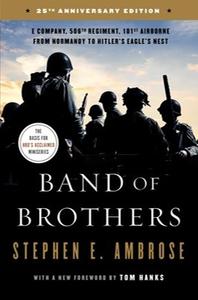 Band of Brothers: E Company, 506th Regiment, 101st Airborne from Normandy to Hitler's Eagle's Nest by Stephen E. Ambrose followed a group of American soldiers during World War II in Europe and was made into the iconic HBO series.
Band of Brothers: E Company, 506th Regiment, 101st Airborne from Normandy to Hitler's Eagle's Nest by Stephen E. Ambrose followed a group of American soldiers during World War II in Europe and was made into the iconic HBO series.
No Ordinary Time: Franklin and Eleanor Roosevelt: The Home Front in World War II by Doris Kearns Goodwin won the Pulitzer Prize.
Angela's Ashes by Frank McCourt was the astounding memoir about growing up impoverished in Ireland and won the Pulitzer Prize, the National Book Critics Circle Award, and the Los Angeles Times Book Award.
Term Limits by Vince Flynn was a self-published bestseller that was then acquired and published by Simon & Schuster's Pocket Books imprint.
Olivia by Ian Falconer, the favorite of pig-loving children, was a Caldecott Honor Book.
Writing: A Memoir of the Craft by Stephen King is one of the best books about writing and was the first book King wrote after his near-fatal car accident.
An Hour Before Daylight: Memories of a Rural Boyhood by Jimmy Carter. The former President won two Grammy awards for his audiobook narration.
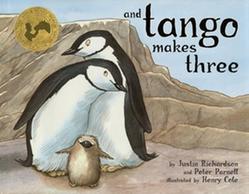 And Tango Makes Three by Peter Parnell and Justin Richardson, illus. by Henry Cole, was inspired by the true story of a pair of male penguin parents in the Central Park Zoo and is one of Simon & Schuster's most frequently challenged books.
And Tango Makes Three by Peter Parnell and Justin Richardson, illus. by Henry Cole, was inspired by the true story of a pair of male penguin parents in the Central Park Zoo and is one of Simon & Schuster's most frequently challenged books.
The Emperor of All Maladies: A Biography of Cancer by Siddhartha Mukherjee won the Pulitzer Prize.
Steve Jobs by Walter Isaacson, the authoritative biography of the Apple cofounder, had the working title iSteve: The Book of Jobs.
A Man Called Ove by Fredrik Backman began as a series of blog posts under the heading "I Am a Man Called Ove," in which Backman wrote about his pet peeves and annoyances. Eventually he realized that his writing had the potential for the creation of an interesting fictional character.
It Ends with Us by Colleen Hoover had stratospheric sales thanks to its popularity on TikTok.
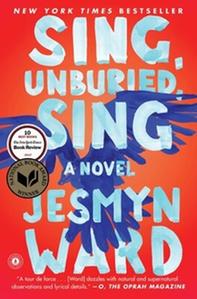 Sing, Unburied, Sing by Jesmyn Ward, the youngest author to win the National Book Award twice.
Sing, Unburied, Sing by Jesmyn Ward, the youngest author to win the National Book Award twice.
Frederick Douglass: Prophet of Freedom by David W. Blight, which was 12 years in the writing, won the Pulitzer Prize.
I'm Glad My Mom Died by Jennette McCurdy began as a script for a one-woman show.
How to Say Babylon: A Memoir by Safiya Sinclair is the stunning story of the author's struggle to break free of her strict Rastafarian upbringing in Jamaica.
Join Shelf Awareness in celebrating the Simon & Schuster Centennial all year long!

